I was interviewed about Hollywood and Christian influence for SkyWatch TV.
Watch me at the 8:20 mark here,
or manually go to the 8:20 mark on this embedded video…
I was interviewed about Hollywood and Christian influence for SkyWatch TV.
Watch me at the 8:20 mark here,
or manually go to the 8:20 mark on this embedded video…
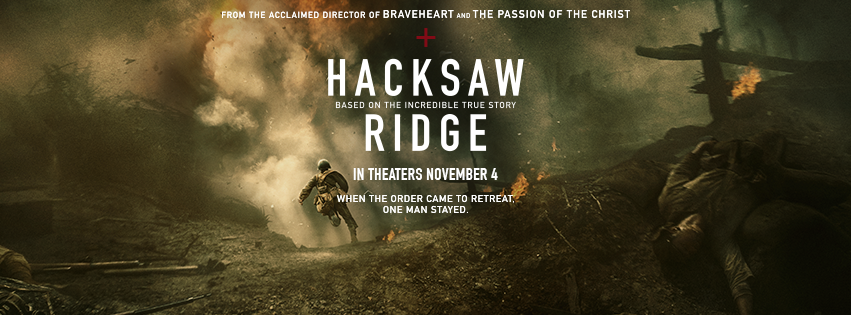
I just saw a rough cut of Hacksaw Ridge, Mel Gibson’s new movie coming out in November.
It’s the true story of Desmond Doss, a Seventh Day Adventist Christian who joined the US military in WWII, but refused to carry a weapon and never fired a bullet. He became a medic who “saved lives instead of taking lives.” He suffered persecution within the system and from his fellow soldiers, but ended up saving 75 of his company’s men in the brutal bloodbath of Hacksaw Ridge on Okinawa.
I will blog more about it when the release comes, but suffice it to say this is the best war movie about Christianity in a time of war since To End All Wars (Go ahead, mock me, accuse me of self-promotion, but it’s true, regardless of who wrote it. And it was a true story too).
He’s done it again. Mel Gibson has crafted one of the most inspiring movies for this generation.
If you want to see Christianity respected in a movie, then you will definitely want to see Hacksaw Ridge.
If you want to see Christianity lived out in grace and sacrifice, then you will definitely want to see Hacksaw Ridge.
If you want to be inspired to be a better person, then you will definitely want to see Hacksaw Ridge.
And here is what is amazing… Continue reading
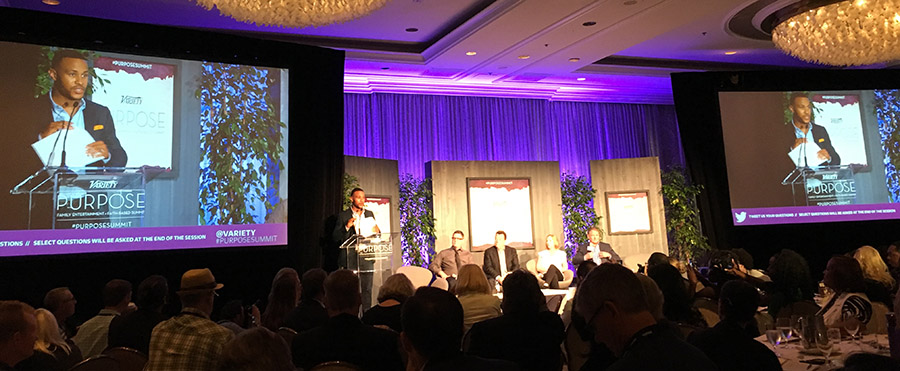
I went to the all-day family entertainment and faith-based summit called “Purpose,” put on by Variety. I saw panel discussions on Faith in Mainstream Entertainment, How to Win the Faith Audience, Representation of Religion in Entertainment and others. This was not a conference for wannabes or Christian subculture, these were successful writers, producers, and executives, key decision makers and content makers in Hollywood. The real thing, people working with studios and networks making and marketing content related to the family and faith audience, or as my colleague Matthew Faraci of Inspire calls it, The “values audience.” (It’s more than just faith, it’s about cherished values that go along with that faith).
I have been involved as an independent filmmaker in Hollywood for a long time and I have experienced my share of cynicism with a system and people who are late to the party of recognizing and respecting the interests of this huge demographic of faith and values audience. But I have also been frustrated with the “faith-based” genre for its cheesy sermonizing and lack of excellence in craft, which to my mind disrespects God by disrespecting creation and beauty. I’m a Christian, and I don’t believe the message of many Christian movies. (Is this the fault of Christians with low standards pouring money into crap or the fault of a media culture that fails to provide for their demographic needs, thus resulting in Christians supporting lesser quality because it’s the only thing that respects them?)
But there is hope growing in Hollyweird.
Studios and networks finally see that there is money to be made in respecting faith and values audiences. As Paradigm agent Michael Van Dyck pointed out, sadly, these gatekeepers still don’t quite understand the demographic beyond their own stereotypes, but they are getting better as they hire more individuals that do get it. Yes, you have the abysmal failures like Noah and Exodus, but then you have the screaming successes of Miracles from Heaven and When Calls the Heart.
Some of those successful storytellers of faith were Devon Franklin, producer of Miracles from Heaven, Patrick Aiello, producer of Risen, Matthew Malick, producer of Scorsese’s Silence, Rick Rekedal of Dreamworks Animation, Jonathan Merkh of publisher Simon and Shuster, Writers Cary Solomon of God’s Not Dead, Bryan Bird of When Calls the Heart and many others.
The key to a growing presence of Christians in Hollywood has been in this generation ceasing seeing Hollywood as Sodom and Gomorrah to flee from without, but rather seeing it as a mission field to go into and influence from within.
Several memes rose within the conference in most all the panels.
Click here to find out all the information and to register.
Thanks to the Greenhouse Arts & Media hosting this upcoming seminar of mine on adapting your screenplays into self-published novels.
I share everything you need to know to tackle this new world of self-publishing, as well as lessons I’ve learned along the way as I adapted and published my own screenplays. I address a number of topics, including adaptation of screenplays into novels, production, publishing, distribution and marketing of self-published novels adapted from screenplays.
But even normal writers will find this presentation immensely helpful in navigating the labyrinth of self-publishing with their novel ideas.
By the end of this class, you’ll know how to:
The Date: Saturday, July 23, 2016 from 9:00 AM to 12:00 PM (PDT)
Location: CBS Studio Center – 4024 Radford Avenue, Los Angeles, CA 91604
Cost: Only $35
Click here to find out all the information and to register.
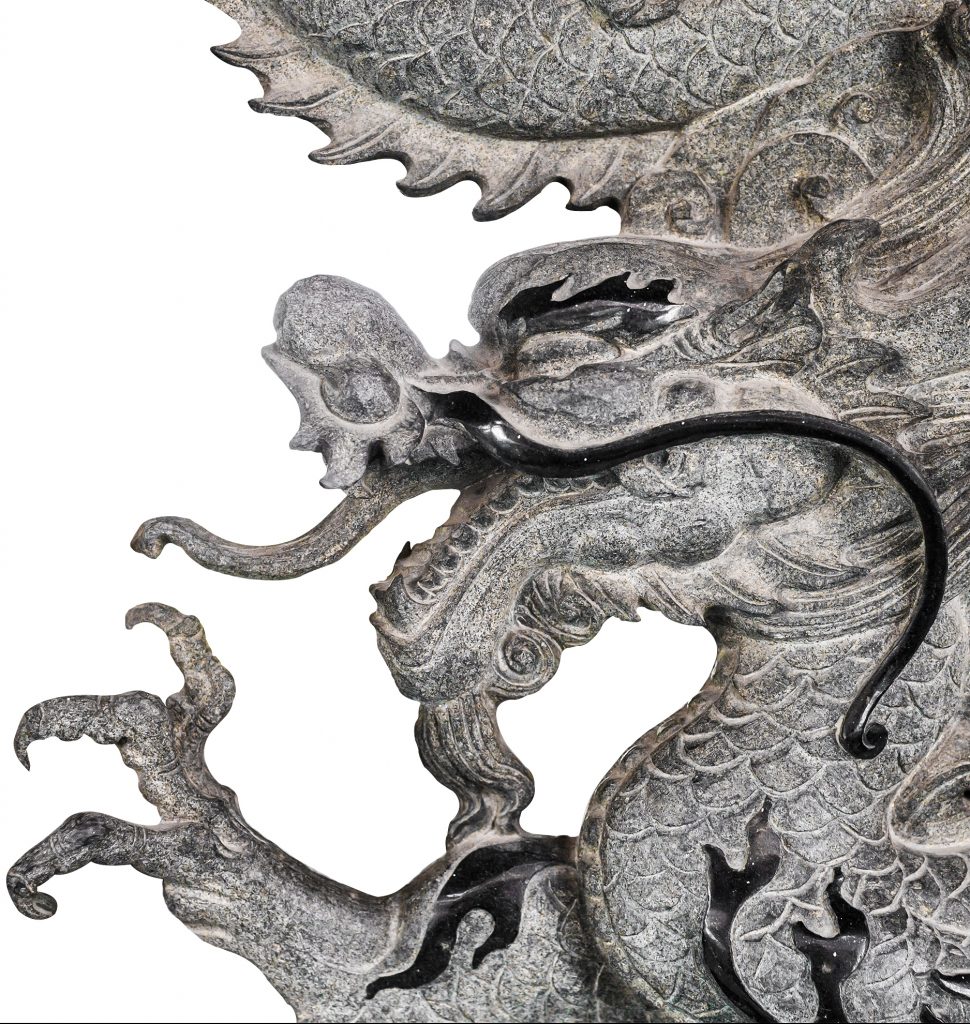 I had a great interview with Off the Grid Radio about my latest novel, written with Charlie Wen of Marvel Studios fame.
I had a great interview with Off the Grid Radio about my latest novel, written with Charlie Wen of Marvel Studios fame.
I explain:
You can see the novel at Amazon here.
See the cast of characters and Charlie Wen’s artwork on the Dragon King website here.
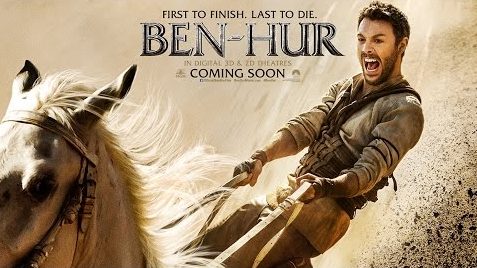
The soon to be released epic period adventure, Ben-Hur is an adaptation of a famous fictional novel by Lew Wallace about a first century wealthy Jew, Judah Ben-Hur, and his pursuit of revenge against an adopted Roman brother who betrays his family. It takes place in Jerusalem during the time of Jesus’ ministry, so it brings a moving clash of worldviews between that of power and empire versus love and faith. And Jesus shows up.
Ben-Hur is a movie that is what Christians have been asking for. A real Hollywood epic with a legitimate Christian worldview. It has some fantastic action sequences that rival anything in recent blockbusters, and in ways far more human and interesting than most of those gluttonous orgies of overspent excessive CGI comic book world destructions. Ben-Hur is more like Saving Private Ryan and better for it.
It’s a timely movie dealing with forgiveness in a world of violence, hatred and oppression against Biblical faith. Not unlike today.
Thank you, Roma Downey and Mark Burnett. And thank you, Paramount for considering the Christian audience with respect. I hope your box office supports your decision.
I can’t tell you about it until review time, so keep on the lookout here at the blog. Sign up to receive email updates.
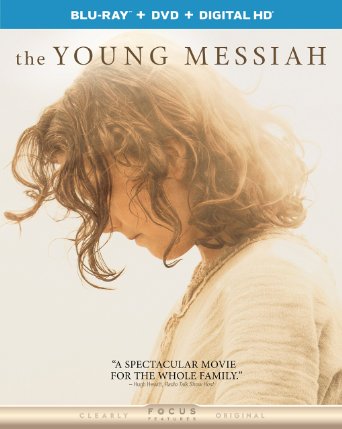 The Blu-Ray and DVD release of The Young Messiah is today and I want to encourage all those viewers who want more quality Christian movies or faith friendly or family friendly or values friendly movies to support this release.
The Blu-Ray and DVD release of The Young Messiah is today and I want to encourage all those viewers who want more quality Christian movies or faith friendly or family friendly or values friendly movies to support this release.
That means “buy it.” You will be glad you did.
The Young Messiah is the story of Jesus as a seven-year old boy coming into the realization of his own identity as the Son of God. Yes, it’s speculative, we know so little about that period in his life. Yes, it is dangerous theological territory to deal with such weighty matters. But Cyrus Nowrasteh and his co-writer wife, Betsy Nowrasteh have done a worthy job of exploring it with faithful respect. And you know, it’s the dangerous risks that can provide the richest and most profound stories anyway.
For a full review/analysis of the movie read my post, The Young Messiah: Must See Bible Movie about Jesus.
Also, check out my interview with the director who found Jesus while making the movie, an interesting revelation of how a person’s worldview really does affect the meaning of the movie. They adapted the movie from Anne Rice’s novel, Christ the Lord: Out of Egypt, but purged the sectarian and questionable elements of the novel to make a more orthodox Christian story.
But that’s not all. There’s extra Jesus here… Continue reading
Jon Pounder did a great video interview for Now You See TV about The Dragon King.
We talked about The Tower of Babel and the Watcher paradigm and how it fits into the Bible and the history of ancient China. The Chinese language is pictorial and embodies elements of the Genesis narrative thousands of years before Genesis was written. How did the ancient Chinese worship ONE God without images in a time when nobody else did, except the Jews? And the Chinese had NO connection with the West or the Jews.
Or did they? Check it out.
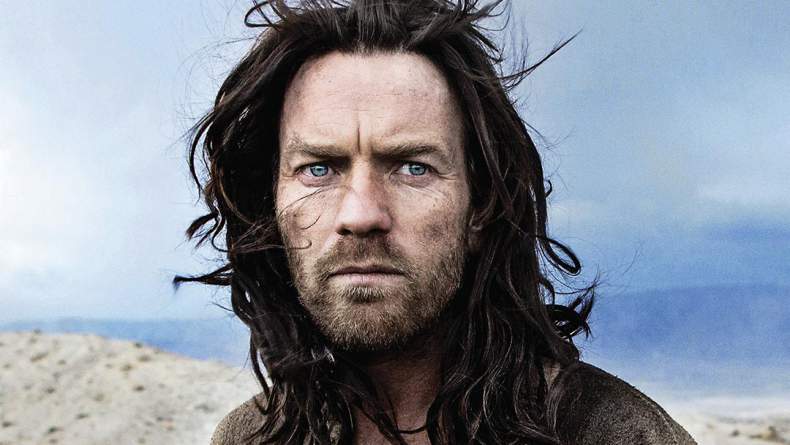
A fictional drama of Jesus during his 40-day fast in the desert. He meets a family with one male son and a sick dying wife, and makes a wager with the devil to try to help them through their family problems. Starring Ewan McGregor as Jesus and Ewan McGregor as Satan.
In my book Hollywood Worldviews I write about how the depictions of Jesus in movies throughout the decades often reflect the zeitgeist of the era. I wrote: “A survey of the portrayal of Jesus in the movies yields an interesting mixture of both historical and mythical, human and divine, sinner and saint. In fact, one might say that the history of Jesus in the movies is precisely a history of the theological struggle between Christ’s identity as God and his identity as man.”
In HW, I called the Jesuses of the movies by their social constructs as depicted in the films:
The Greatest Story Ever Told (1965): Leonardo-DaVinci’s-humanistic-Renaissance Jesus.
King of Kings (1961): Youthful-blue-eyed-Aryan-WASP-moviestar Jesus.
Jesus of Nazareth (1977): Hypnotic-eyed-possibly-drug-addict-Jesus-who-never-blinks.
Jesus Christ Superstar (1972): 70s-nonviolent-peace-demonstrator scapegoat-for-the-military-industrial-complex Rock n Roll Messiah.
The Last Temptation of Christ (1982): Confused-epileptic-temper-tantrum-sinner Jesus.
The Gospel of Matthew (1995): Smiley-faced-California-surfer-dude Jesus.
Jesus: The Epic Miniseries (2000): Politically-correct-lovey-dovey-pacifist-television Jesus.
Judas (TV 2004): Dr.-Phil-Scooby-Doo-Shaggy-Malibu Jesus.
Look, I realize how impossible it is to portray the God-man in any way that everyone will approve of. That ain’t gonna happen. (It would take a – a miracle! And then most people wouldn’t believe it anyway)
My definition of the Jesus of The Last Days in the Desert as being a “Boring-Arthouse-Existentialist Jesus” is certainly no disappointment with the very weighty performance of McGregor (The Satan part is addressed later). His acting was profound and very human. He really brought it with this portrayal of Jesus being tempted by the lust, the flesh, the eyes, and the pride of life without being a sinner. Fair enough. A Jesus who, like many holy men, fasts in order to draw close to the God he feels out of touch with. A Jesus who wrestles with existentialist issues of presence and purpose, most akin to the Gethsemane scene of the dual natures in conflict.
Or is it?
The director, Rodrigo Garcia, who claims to not be a Christian, said that he could only understand Jesus’ human side. He questioned how could one portray the divine side anyway? Again, fair enough. At least he didn’t try to subvert Jesus into his opposite like the most recent abominable Noah and Exodus movies do with God and their human heroes.
Or did he? Continue reading
The brilliant and very friendly Brett Kunkle interviewed me on the Stand To Reason Podcast here.
We talked about some heavy stuff. Guaranteed to fascinate you. The need for Christian artists to be theologically informed and the need for theological Christians to be artistically informed from the Bible. Art, aesthetics, beauty are not merely acceptable, they are necessary to knowing God properly. But also, did you know God used artistic imagination to defend the faith? Did you know God used subversion to redeem pagan imagination and pagan art?
This is the book we talked a lot about: God Against the gods.
Here is the video presentation of God Against the gods.